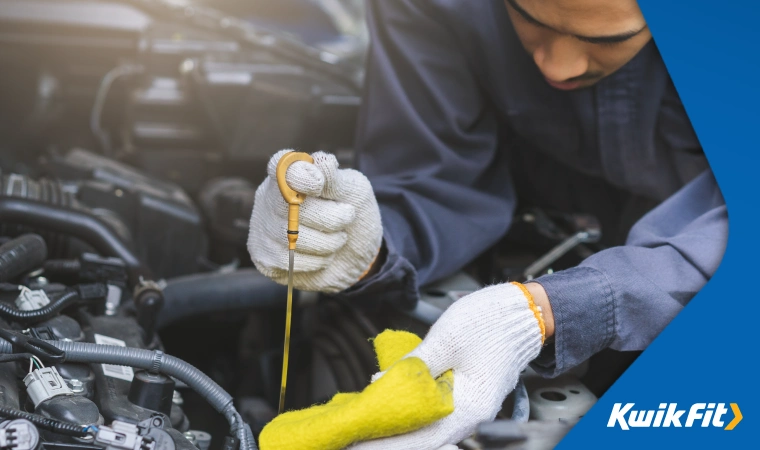Does My Vehicle Require A Class 4/Class 7 MOT?
Jack Dreyer | Monday 24th June 2024 10:00am

Ensuring your vehicle is roadworthy is not just about safety, itís also a legal requirement in the UK. A yearly MOT is a crucial part of vehicle maintenance, designed to check the safety, roadworthiness, and exhaust emissions of vehicles. However, understanding which MOT class your vehicle fits in, your vehicle fits in can be confusing, especially if you've not been a driver for long.
In this blog, we will dive into the differences between the main Class 4 and Class 7 MOTs, helping you determine the right MOT for your vehicle. Whether you drive a small car, a large van, or a dual-purpose vehicle, this guide will help you navigate the categories.
What's the difference between class 4 and class 7 MOT?>
There are a number of different class MOTs for vehicles in the UK, Understanding the difference between Class 4 and Class 7 MOT tests is essential for ensuring your vehicle meets the legal requirements and remains safe on the road.
The most common is the Class 4 MOT, which applies to a wide range of vehicles. If you own a standard car or a light goods vehicle, itís likely that this is the MOT you need, including cars, taxis, and lightweight goods vehicles. Class 7 MOTs, on the other hand, apply to commercial vehicles that have a gross weight of between 3,000kg and 3,500kg.

Class 4 MOTs
As explored above, a Class 4 MOT is the most common MOT type, and applies to a wide range of everyday vehicles. Specifically, a Class 4 MOT is required for passenger cars with up to 8 passenger seats, small vans with a Design Gross Weight (DGW) of up to 3,000 kg, and motor caravans that fall within this weight limit.
Additionally, dual purpose vehicles, which we will touch on in more detail later, designed for both passenger and goods transport, and private hire vehicles such as taxis and ambulances, also fall under the Class 4 category.
The Class 4 MOT test involves a comprehensive check of various components, including lights and signalling equipment, steering and suspension, brakes, tyres and wheels, seat belts, exhaust and emissions, and the body structure as well as the general condition of the vehicle. This ensures that the vehicle meets safety and environmental standards, providing peace of mind for drivers and contributing to overall road safety.
Class 7 MOTs
A Class 7 MOT is essential for larger goods vehicles, particularly those used for commercial purposes. This test is required for vehicles with a DGW between 3,000 kg and 3,500 kg, usually larger vans and pickup trucks that transport heavier loads.
The main point of difference here is that a Class 7 MOT is designed to ensure that these more substantial vehicles are safe and capable of handling the additional stresses associated with carrying larger weights, ensuring that these vehicles can safely carry out their commercial functions without compromising safety. The greater the weight of a vehicle, the greater the stress placed on features such as brakes and tyres, causing them to wear down quicker.
MOT testing for dual purpose vehicles
Dual purpose vehicles are unique in that they are designed to serve both as passenger cars and as goods carriers. These vehicles must meet specific criteria to qualify as dual purpose under UK regulations, typically encompassing features that allow them to carry passengers comfortably while also being capable of transporting goods efficiently.
A dual purpose vehicle is one that is constructed or adapted for the carriage of both passengers and goods or burden of any description, and has an unladen weight (ULW) not exceeding 2,040 kg (this weight is not displayed on the vehicle and is not obtained using E3 or any other source by the company).
MOT Class for dual purpose vehicles
Dual purpose vehicles typically fall under the Class 4 MOT category. Under the Class 4 MOT category along with most passenger vehicles, this test ensures that the vehicle meets the necessary safety and environmental standards to safely carry both passengers and goods.

Pass or fail: what happens next?
If your vehicle passes its MOT, you will receive a pass certificate from the test centre, and the information will also be recorded in the MOT database. You may get a straight pass, or you might get a list of Ďadvisoryí or Ďminorí problems that you will need to monitor and, if necessary, fix in the future.
If you fail a vehicle MOT check, you will receive a Ďrefusal of an MOT test certificateí and the results will list any Ďdangerousí or Ďmajorí issues that need to be addressed. The failure will be recorded in the MOT database. If you think the decision is wrong, you can appeal it.
You may be permitted to drive your vehicle away to have the necessary repairs carried out if your current MOT certificate is still in date or if no Ďdangerousí problems were listed. However, if you donít meet these criteria, you will need to get the problems fixed before you drive anywhere.
No substitute for a service
Making sure your vehicle has its annual MOT check is essential. Youíre breaking the law if you donít do this. However, this isnít the only annual check that you should arrange. An MOT is no substitute for a vehicle service. The tests only make sure your vehicle is roadworthy; they donít ensure that it is running as smoothly and efficiently as possible.
In contrast, a service includes an in-depth mechanical assessment of your vehicle following detailed guidelines set out by the manufacturer. Often including fluid and filter changes, services are designed to keep your car in peak condition. They can ensure that any problems are identified and fixed, reducing the risk of breakdowns and ensuring your vehicle is running as efficiently as possible. Having a complete service history will also help to maintain the value of your vehicle if you go on to sell it in the future.
Trust Kwik Fit for your MOT needs
If your vehicle has an upcoming MOT, get reliable help and testing at your local Kwik Fit centre today, book in for a quality MOT or service, or save time and money by combining the two!
Any facts, figures and prices shown in our blog articles are correct at time of publication.
Featured Articles
Is it Illegal to Drive With One Headlight?
Saturday 19th July 2025
Wondering if itís illegal to drive with one headlight? Learn about the safety risks and penalties of illegal blown bulbs and why you should fix them promptly.
Air Con in EVs & Hybrids: Experts Answer Your Questions
Monday 30th June 2025
Does air con drain EV batteries? Can you use the air con while charging an electric car? Find out the answers to these questions & more from Kwik Fitís experts.
Why Is Your Car Making a Noise? Fixes & Tips
Friday 13th June 2025
When your car starts making unexpected noises, it can certainly be quite disconcerting; it may be nothing to worry about, but hereís what you need to know.









